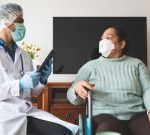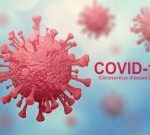
Swimming and summer are practically synonymous, but getting sick from bacteria in lakes, rivers and the ocean can spoil the fun, U.S. health officials warn. Since 2009, nearly 120 disease outbreaks in 31 states have been tied to untreated recreational water. But being aware of potential harms and taking precautions can help keep you healthy while you cool off, according to a new report from the U.S. Centers for Disease Control and Prevention. “Swimming is a great opportunity to be physically active, and we’re telling the public just do it in a smarter, more healthy way,” said report co-author Michele Hlavsa, chief of the CDC’s Healthy Swimming Program. Contamination can occur from many sources, she said. These include storm water runoff, septic or sewer overflow, or water from farms or wastewater treatment plants. “They add poop to the water,” Hlavsa noted. Also, animals may defecate on the beach or in the water. The most common infections are from bacteria, and include norovirus, Shiga toxin-producing E. coli, Cryptosporidium and Shigella. These bacteria can cause nausea, diarrhea, vomiting and fever. Most often, these conditions go away by themselves, but for some, like kids and the elderly, these infections can be fatal. Older people with chronic conditions or compromised immune systems can be especially susceptible to getting sick. “One of the outbreaks highlighted in this report involved a… read on >


















